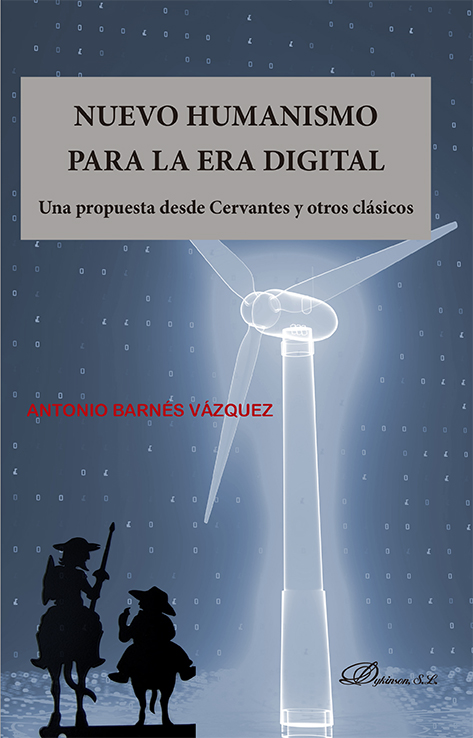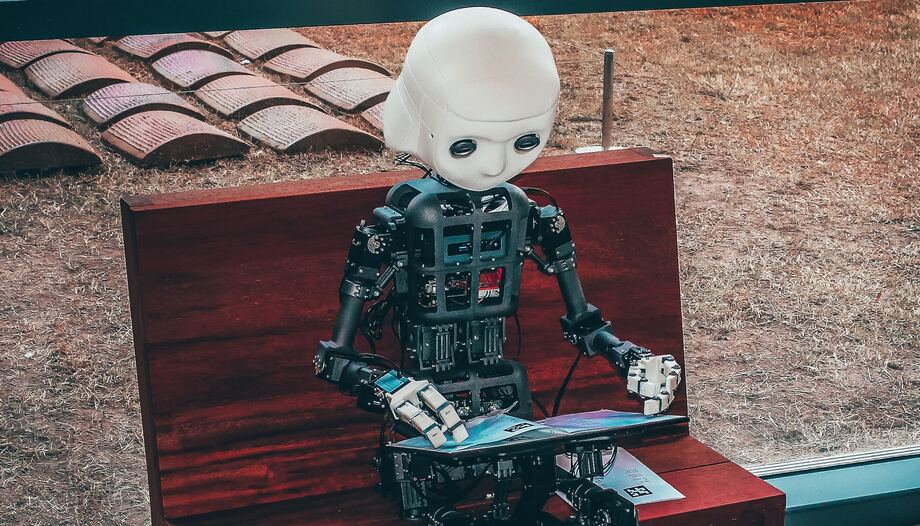 Artificial intelligence: Robots better than humans?
Artificial intelligence: Robots better than humans? Dante's humanism, still current and relevant today
Dante's humanism, still current and relevant todayGod, the world and man (the main subjects of philosophy, according to Kant) are complex realities. What we are able to say about them is polyphonic, never univocal, often analogous. Hence, the answers of the so-called artificial intelligence can be ONE answer, more or less correct or even brilliant, but not THE answers. A contribution from an artificial intelligence program can be useful, but always insufficient.
New humanism for the digital era

There are sciences of the spirit and sciences of nature. There is the realm of freedom and the realm of necessity. Spirit surpasses nature; and freedom surpasses necessity. In the realm of spirit and freedom, artificial intelligence is even more insufficient, for it is a more polyphonic, less univocal space. Let us imagine that we ask an artificial intelligence program to explain the differences between the poetry of Espronceda and that of Bécquer. And let's imagine that we get a very sharp answer. Well, there is room for another 100 sharp answers, since the comparison between both poets generates multiple discourses, not closed, by the way.
Don Quixote became obsessed with a new technique (the printing press), which made it possible to multiply books, and with a genre (chivalry) whose rhetoric allowed the reader to immerse himself in a virtual universe. What saved Don Quixote? Sancho's friendship and his humanistic readings. Our digital era requires a humanistic education that counteracts the tendency to seek in technology the truths that the human mind aspires to find. This is what is developed in the book "New humanism for the digital era"(Madrid, Dykinson, 2022), published by the author of this article.
"New Humanism for the Digital Age" offers proposals from works by Miguel de Cervantes and other classical authors that, within the framework of Renaissance humanism, can be fruitful in this beginning of the third millennium: the "digital age". The wonder at the beauty of man and woman; the openness to transcendence; the awareness that we are an abbreviated world... are humanist legacies of enduring value. Man is a being in search of meaning, and a humanist vision can satisfy this yearning. Globalization, the bureaucratization of the State, the reductionism inherent in the media and social networks turn human beings into producer-consumer subjects enslaved by technology. The humanismThe book, a successful synthesis of the Greco-Roman world and the Judeo-Christian civilization, has not said the last word, but presents an open corpus of ideas that encourage personal freedom and responsibility.
Great works of the past such as "Antigone" (Sophocles), "Hamlet" (Shakespeare) or "Don Quixote" bring fresh air to a bipolar and narcissistic culture like ours. Exciting issues such as the relationship between words and images, translation, bilingualism, dialogue, identity, political messianism, progress, the myth of the cave, anthropological models, the Bible, love, sanity or virtue parade through these pages.
The prominent sociologist Amando de Miguel, recently deceased, states in the prologue that the continuous connection of the Internet "represents the opportunity for the establishment of a true humanistic civilization. It is the one preached in this book with a formidable thickness of knowledge, bringing together the Greek, Roman and medieval traditions. Without all this, modern and scientific Europe could not have existed. Common to so many layers of knowledge is curiosity. One is tempted to suspect that the civilization that awaits us in this third millennium will mean the disappearance of books. Faced with the possibility of such a catastrophe, this Barnesian work is a kind of lifesaver to know which books should be preserved like gold in cloth".











